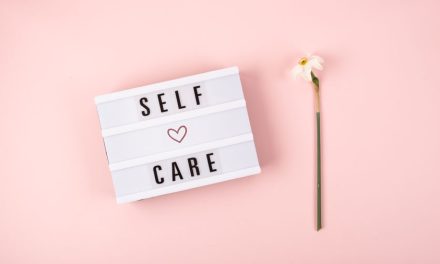Are you getting enough B vitamins? Good health starts with these building blocks known as Vitamins B1, B2, B3, B5, B6, B7, B9 and B12 all of which are water-soluble. These eight vitamins are used by the body on a daily basis and without them a range of symptoms can occur. They are therefore required to be replenished daily to guarantee that the body is getting enough B vitamins consistently.
When people don’t get enough B vitamins or without a B vitamin supplement, the body can flush them out via the urine. Symptoms of B vitamin deficiency vary and include bloodshot eyes, chapped lips – related to a B2 deficiency. Insomnia, mouth or throat infections, fatigue, irritability and stomach pain are associated with a B5 deficiency.
The symptoms of B6 deficiency include depression or skin disorders related to anemia, easy bruising, weakness, and confusion is related to a B12 deficiency. The deficiency of Vitamin B12 can be perhaps the most damaging and is related to a range of troubling health issues.
Why Does The Body Need B12?
Vitamin B12 is important as it is involved in making DNA, nerves and red blood cells that carry out a wide range of bodily functions. Many of us are simply not getting enough of this important vitamin however and when we don’t get these daily requirements, our bodies may also be ill equipped to absorb it. When this B12 deficiency isn’t addressed it can also progress to other areas causing memory loss, depression, loss of taste and smell along with paranoia and delusions. Vitamin B12 deficiency is most common in older people, those suffering from Celiac or Crohn’s disease or who have gone through weight loss surgery.
The trouble is that many people don’t recognize they have troubling heath issues related to Vitamin B12 until it’s too late. This is why Vitamin B12 deficiency has been labeled as “harmful” or “sneaky” by Patrick J. Skerett, the executive editor of Harvard Health, as it can progress undetected for these reasons. Many of us simply aren’t getting enough B vitamins from food or supplements either. [1]
What Are The Benefits of B Vitamins?
Vitamin B plays an integral role within the body by converting a toxic amino acid known as homocysteine down into the bloodstream and the resultant amino acids. When the body breaks down methionine, homocysteine is produced.
A body in good health has plenty of B vitamins such as Vitamin B6, folate (B9) and B12 ready to convert this homocysteine into methionine, while keeping the homocysteine blood levels stable. Heart and vessel disease increases if homocysteine reaches high levels. [2]
Elevated homocysteine levels within the blood are indications of the development of Alzheimer’s and dementia, along with miscarriage or female infertility, stroke, memory decline or poor concentration. [3]
A study by researchers from the Tufts University discovered that a B vitamin deficiency can lead to vascular cognitive impairment with their reasoning being, “The B-vitamin deficient mice developed plasma homocysteine concentrations that were seven-fold higher than the concentrations observed in mice fed a normal diet.” Their belief is that homocystine might not be directly responsible for cognitive impairment but a B vitamin deficiency could trigger metabolic disorder that is found in higher homocysteine levels and cerebral microvascular dysfunction.” [4] A Japanese study also indicated that women with a diet high in folate and B6 are less likely to die from heart disease and strokes, while men were less likely to die from heart failure.
Simple changes to the diet can improve homocysteine levels and through supplementation with B vitamins. For best results, it’s also recommended to have yearly homocysteine tests performed to track your B vitamin targets.
B Direct With The Source
While no one can argue against the fact the body requires water-soluble B vitamins to prevent any kind of deficiency, it’s become of more importance as to how the body gets these vitamins.
It’s possible to get ample amounts of Vitamin B12 directly from protein sources such as eggs, poultry and grassfed meats but there are no guarantees that the body will absorb it. This absorption problem is especially rife in the Standard Western diet that’s usually filled with processed foods in the form of starchy carbohydrates and excess sugars, both of which can burden the digestive system.
Essential B vitamins can’t be so readily absorbed when the body is suffering with chronic inflammation, making it difficult for the body to break down what it gets from the food. Taking a soil-based probiotic on a regular basis can help with restoring the digestive health of the system so that all of the nutrients can be readily absorbed.
Taking a highly absorbable B vitamin supplement on a daily basis, in the form of a sublingual spray can also bypass many of the common issues triggered by a poor diet. By spraying the B vitamins directly under the tongue instead of wasting the B vitamins within the small intestine where they might not be thoroughly absorbed, the sublingual B vitamins can be very quickly delivered into the bloodstream to ensure that the homocysteine levels are balanced.
The body requires an effective B vitamin spray in an easily absorbable form and if it doesn’t get its support from Vitamins B1, B2, B3, B5, B6, B7, B9 and B12 within the diet it needs the support through oral supplementation. A lack of B vitamins can cause a dangerous deficiency – so ‘B’ bright and give your body the ‘B’ vitamins it needs for long-term good health.
B4 Health Sublingual Spray is recommended for this purpose as it is 900% better absorbed than capsules and can help to maintain healthy homocysteine levels and essential nutrients within the body.
Sources:
1. “Vitamin B12 deficiency can be sneaky, harmful.” Harvard Health Publications.
2. Ohio State University. “Stress Increases Blood Chemical Related To Heart Disease.” ScienceDaily.
3. “High Homocysteine Levels May Double Risk Of Dementia, Alzheimer’s Disease, New Report Suggests.” NIH/National Institute On Aging.
4. Troen et al. B-vitamin deficiency causes hyperhomocysteinemia and vascular cognitive impairment in mice. Proceedings of the National Academy of Sciences, 2008; 105 (34): 12474 DOI: 10.1073/pnas.0805350105.
5. Renzhe Cui, Hiroyasu Iso, Chigusa Date, Shogo Kikuchi, Akiko Tamakoshi for the Japan Collaborative Cohort Study Group. Dietary Folate and Vitamin B6 and B12 Intake in Relation to Mortality From Cardiovascular Diseases. Japan Collaborative Cohort Study. Stroke, 2010; DOI: 10.1161/STROKEAHA.110.578906.




